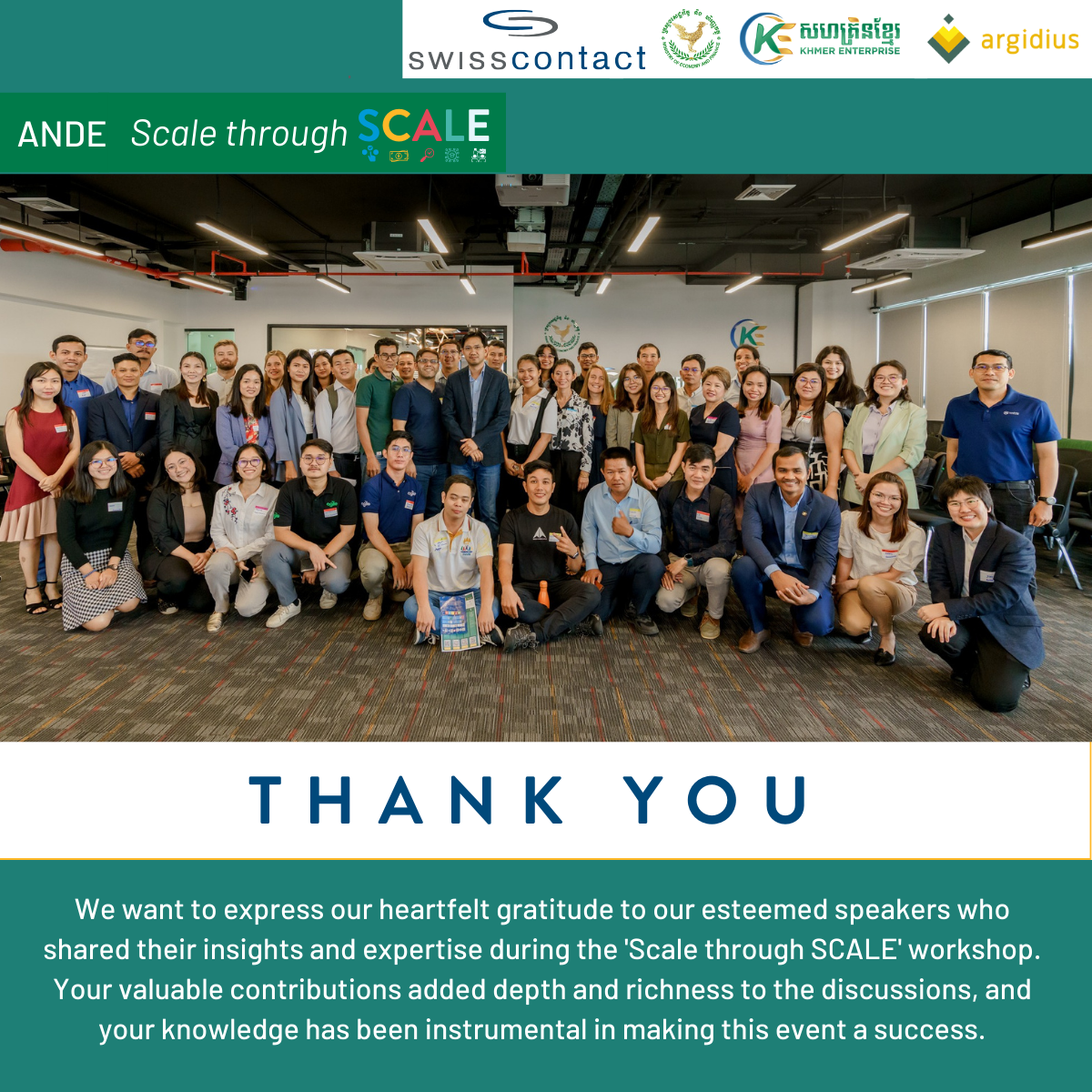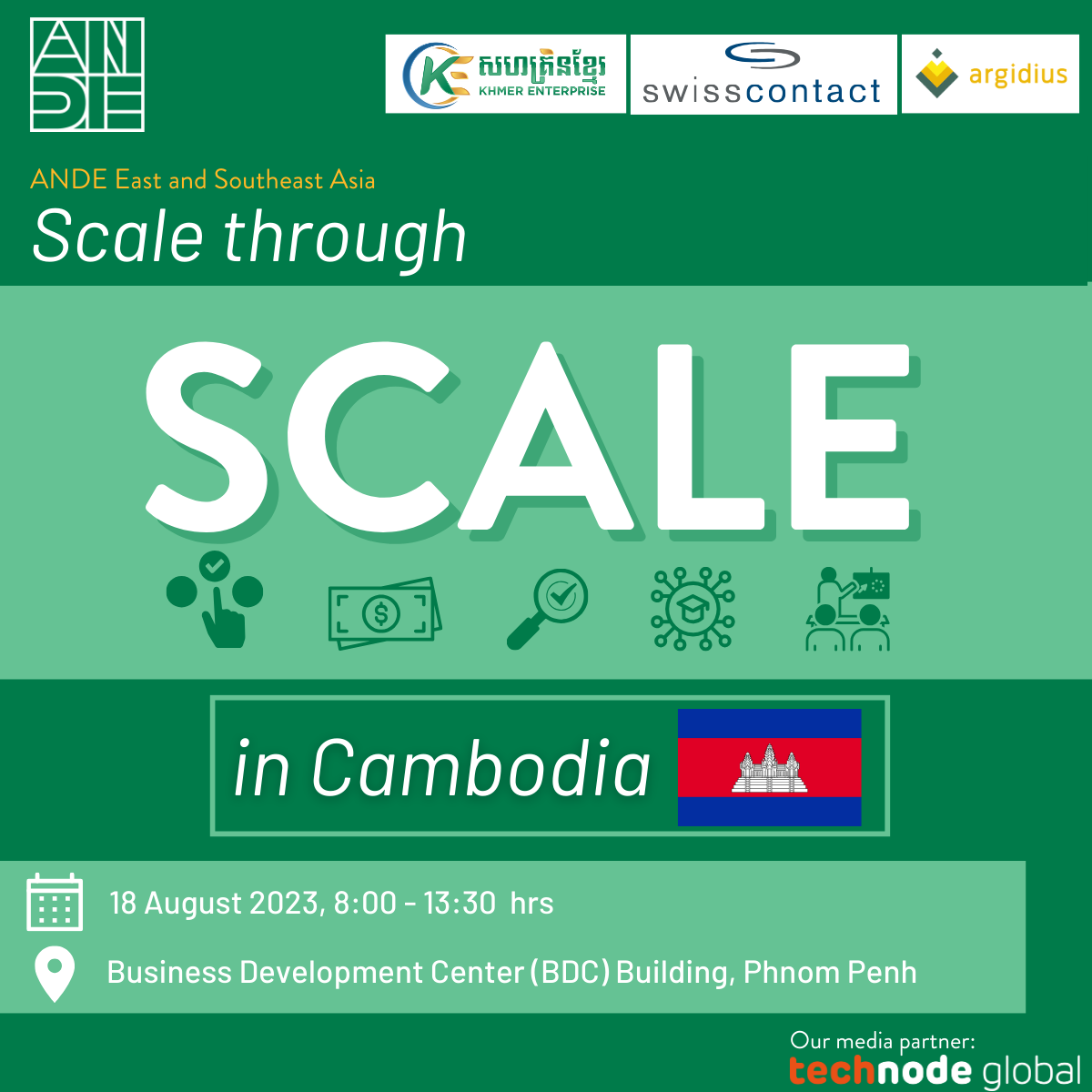
On 18 Aug 2023, the ‘Scale through SCALE’ workshop successfully held in Cambodia by ANDE East and Southeast Asia Chapter, in collaboration with Khmer Enterprise and Swisscontact Cambodia. The workshop disseminated a set of evidence-based considerations emerged from the research of the Argidius Foundation that distinguishes the cost-effective and impactful Business Development Services (BDS) programs from the less effective ones.
Here’s a run-down of our workshop
As we journey through the dimensions of ‘S,’ ‘C,’ ‘A,’ ‘L,’ and ‘E,’ let’s illuminate the key takeaways that emerged from this engaging event!
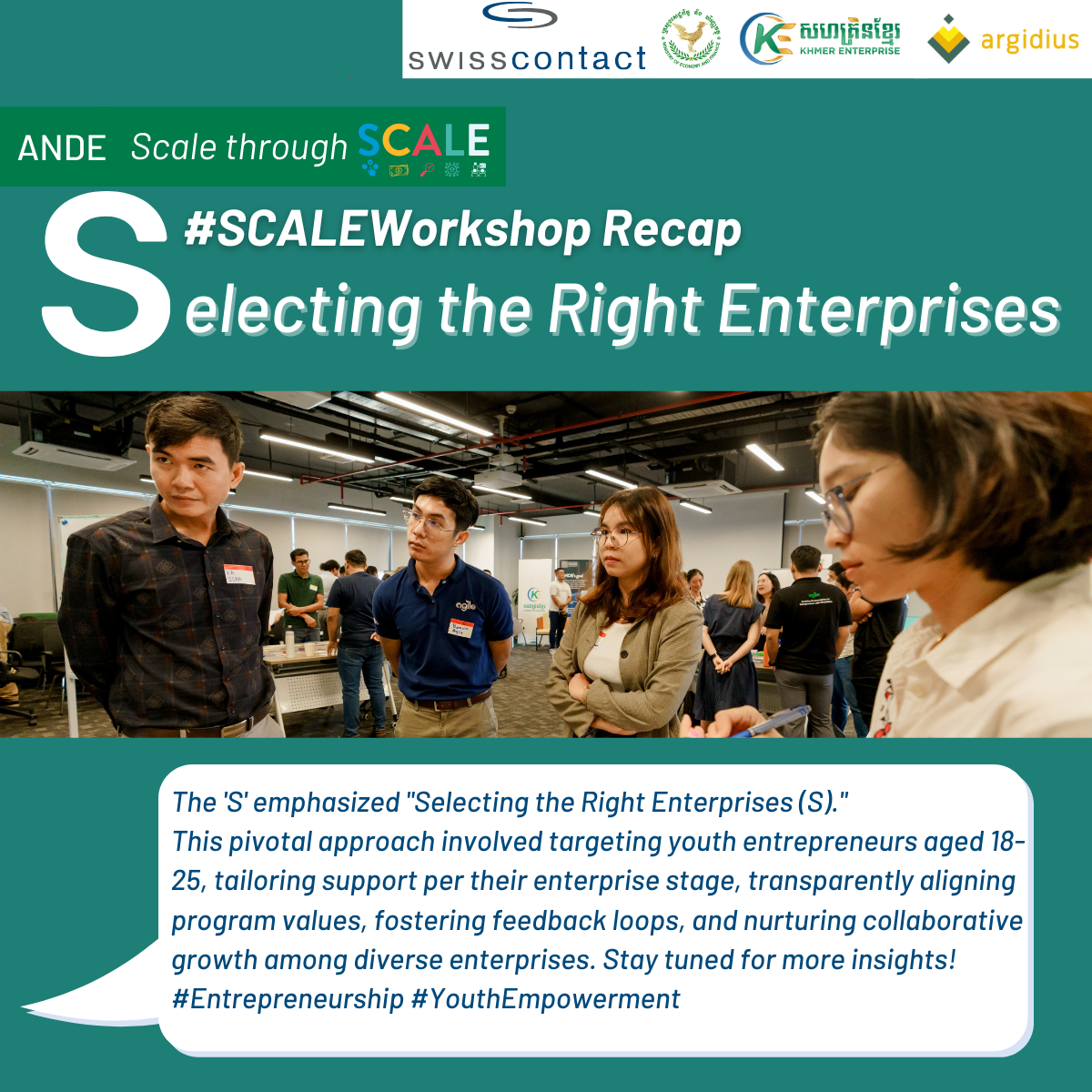
Starting with the Selecting the Right Enterprises (S)
Segmentation: Understanding the stage of their enterprise development allowed us to tailor support – whether it’s early-stage hurdles or refining product-market fit.
Value Proposition: Our focus was on communicating transparently. By aligning our program’s value proposition with the expectations of startups, we forged a strong connection. We shared project criteria, outcomes, and objectives through info sessions and direct interactions.
Feedback Loop: Learning is a two-way street. We valued entrepreneurs’ voices by actively seeking feedback about our selection process. This valuable input was collected post-program, enriching our understanding and refining our approach.
Collaborative Growth: The journey doesn’t end here. We fostered an environment for cross-sharing experiences among diverse enterprises. From different stages to varied challenges, collaboration paved the way for collective growth.
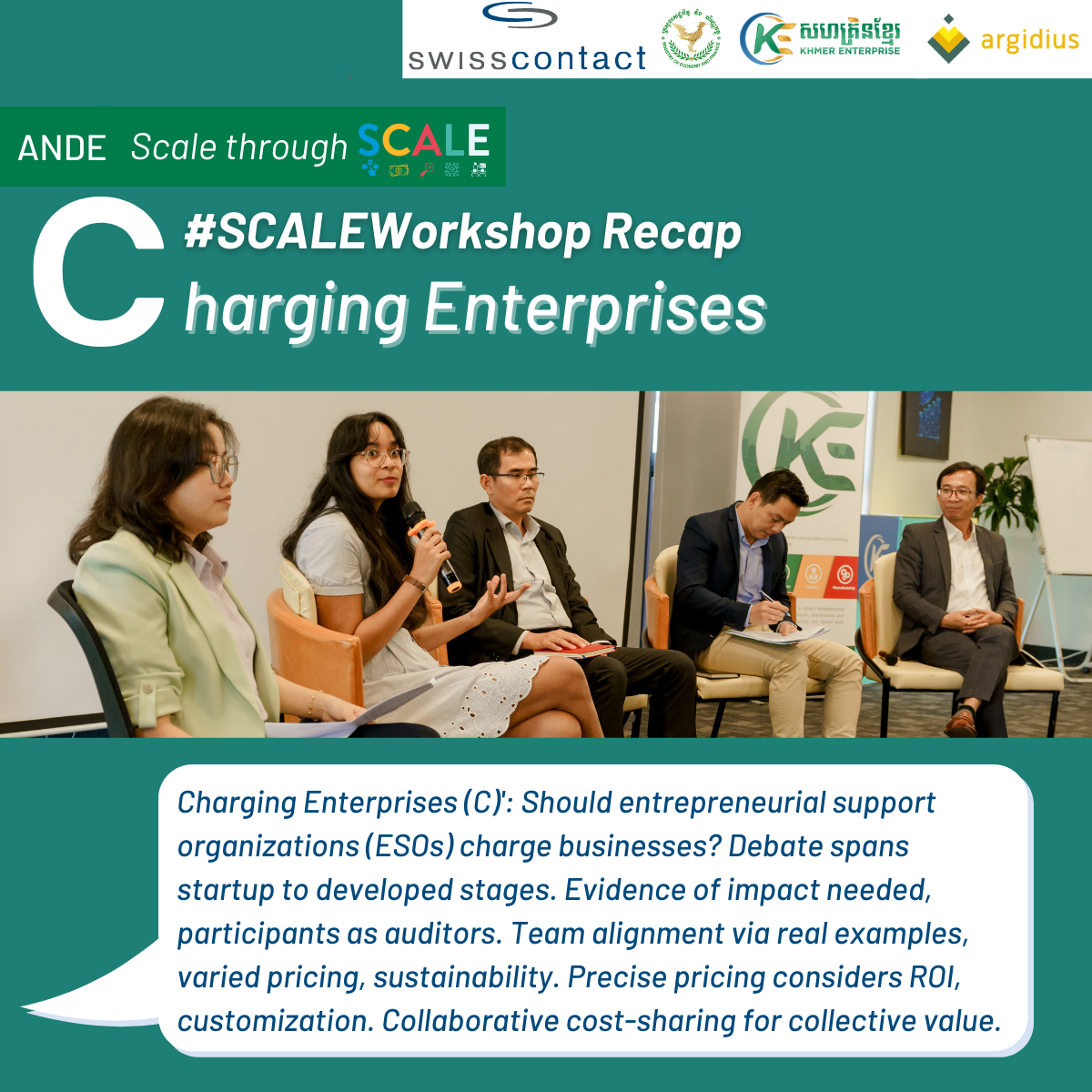
Charging Enterprises (C)
Charging Strategy: Contemplating whether ESOs should charge enterprises unfolds around their unique developmental stages. From startups grappling with initial financial limitations to those recognizing the intrinsic value of ESO programs, the charging debate is intricate.
Crafting the Case: To substantiate charging, ESOs must furnish compelling evidence of program achievements – encompassing increased income, business expansion, and inspiring testimonials from program alumni.
Benefits Revealed: Charging enterprises introduces a distinctive dynamic. Beyond financial contribution, paid participants become program auditors, propelling ESOs to enhance their delivery and thus, their overall performance.
Team Alignment: Gaining internal consensus on charging involves showcasing real-world examples, experimenting with diverse pricing models, and underlining the importance of a sustainable financial approach.
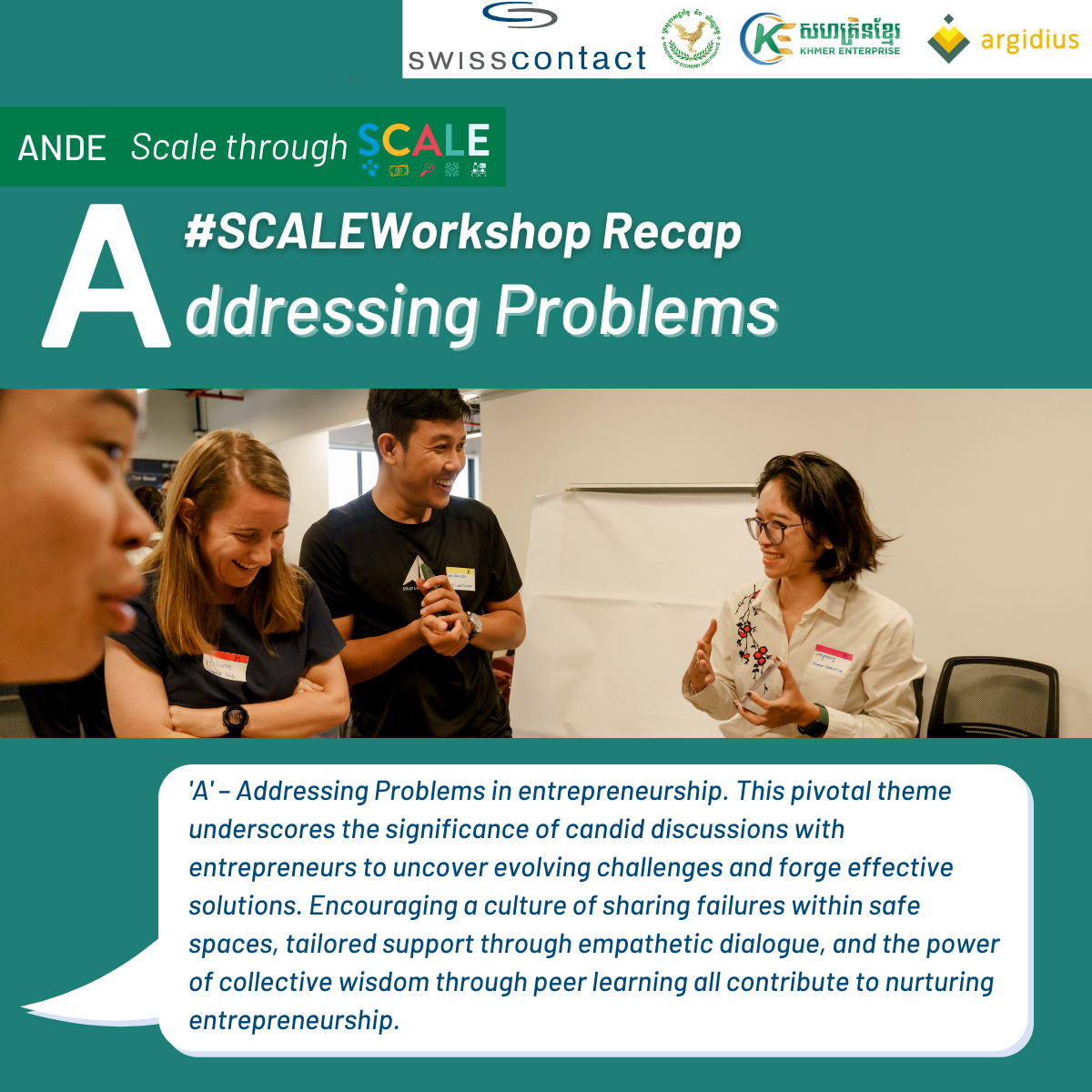
Addressing Problems (A)
Open Conversations: Engaging in candid conversations with entrepreneurs is vital. By delving deep into their evolving problems and priorities, we forge paths to effective solutions.
Embracing Failures: Encouraging entrepreneurs to openly share their failures isn’t without challenges, considering cultural nuances and trust factors. Creating a safe space for such discussions is paramount.
Collective Wisdom: Peer learning and collaboration empower entrepreneurs to generously share advice and experiences. Together, we uplift each other towards growth.
Tailored Support: Crafting a tailored support curriculum requires a blend of assessment tools and empathetic dialogue. Understanding needs forms the cornerstone.
Mentorship Magic: Matching mentors with entrepreneurs involves considering profiles and leadership styles. This symbiotic pairing enhances mentorship impact.
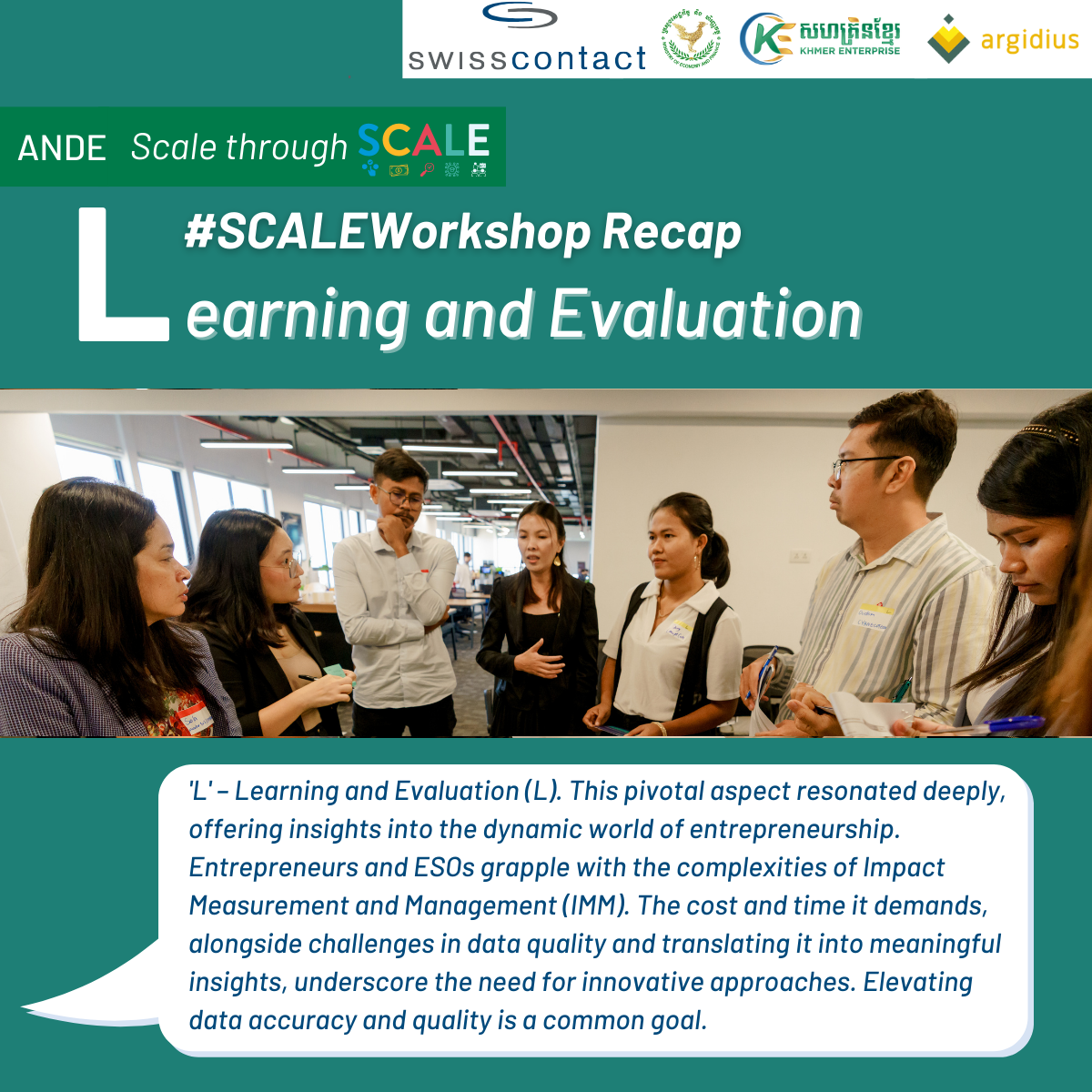
Learning and Evaluation (L)
Challenges Unveiled: Entrepreneurs and ESOs grapple with the complexities of Impact Measurement and Management (IMM). The cost and time it demands, alongside challenges in data quality and translating it into meaningful insights, underscore the need for innovative approaches.
Practices to Embrace: Evaluation forms the bedrock of understanding success. Long-term evaluations, continuous progress tracking, and alignment with stakeholders’ outcomes and indicators enrich the evaluation landscape.
Data Collection Mastery: Justifying data collection’s purpose, communicating expectations in advance, and bridging the language gap between ESOs and entrepreneurs are key. Empowering entrepreneurs with data utilization skills is a shared aspiration.
Fostering Relationships: Building strong relationships with entrepreneurs extends beyond data collection. Emotional support, open dialogues, and alumni gatherings forge an ecosystem of shared progress.
Innovative Suggestions: For funders, exploring incentivization mechanisms such as promoting carbon credits for data collection could align financial goals with impact measurement. ESOs are encouraged to integrate Monitoring and Evaluation (M&E) as a program staple, co-design data collection with entrepreneurs, and tailor standards to individual enterprise contexts.
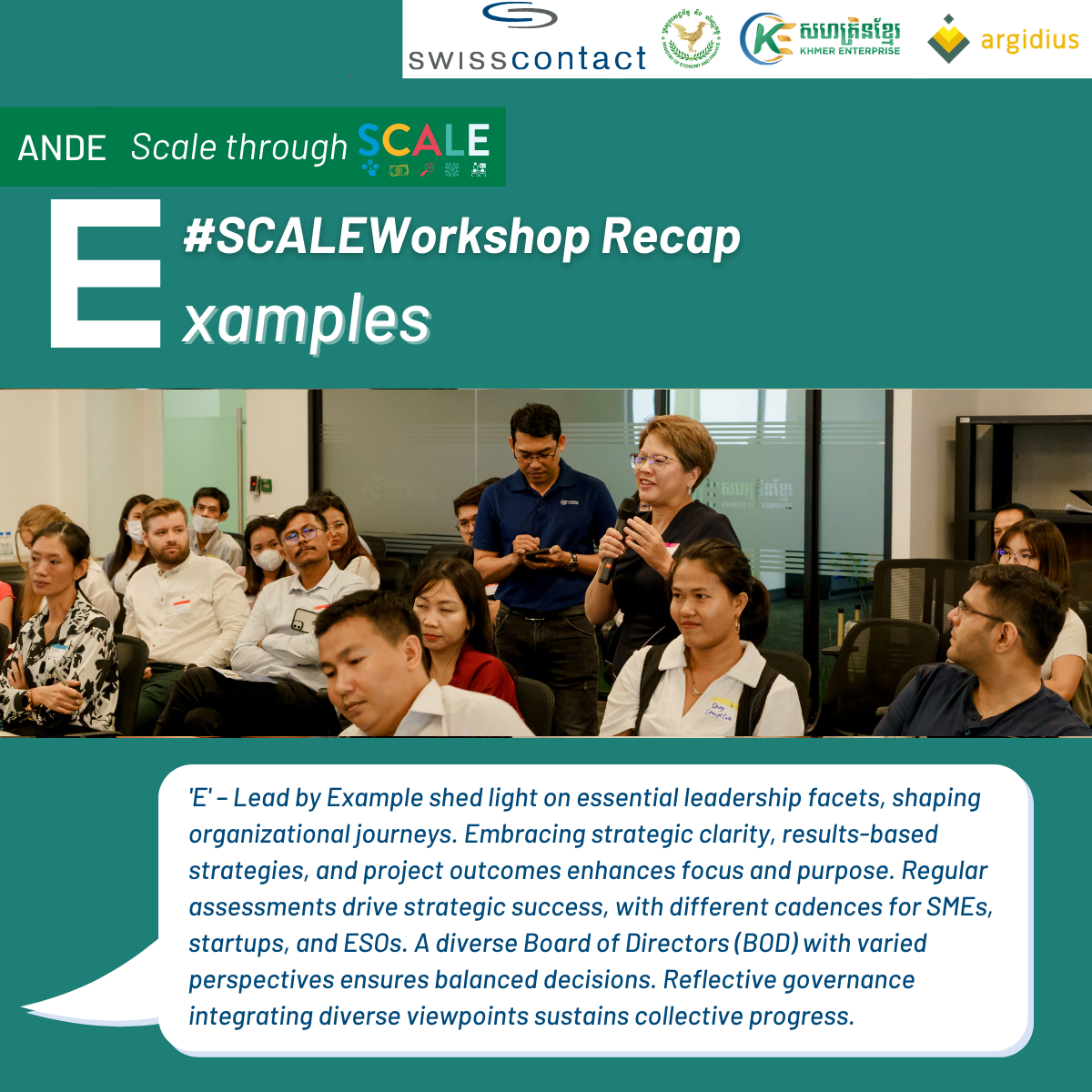
Lead by Examples (E)
Strategic Clarity: Does your strategy illuminate what your organization engages in and what it doesn’t? Embracing sales growth, results-based strategies, and project outcomes enhances focus and purpose.
Reflective Governance: Integrating a governance structure mirroring diverse viewpoints requires vigilance, ensuring that the collective voice thrives.
Financial Sustainability: Navigating the financial landscape involves exploring projects, showcasing outcomes to donors, implementing partnership initiatives, and offering subsidized training/mentoring sessions. Beyond grants, revenue sources like product sales, service charges, and blended models add financial resilience.
Team and Growth Structure: Crafting adaptable team structures, reflecting organization size and revenue streams, cultivates agility and scalability.
Fostering Learning Culture: Building an ethos of continuous learning, supported by online platforms and professional training, amplifies employee productivity.
Partnerships for Impact: Leveraging partnerships with BDS providers to amplify impact is strategic. Defining strengths and contributions while seeking complementary qualities in partners fortifies collaborative growth
